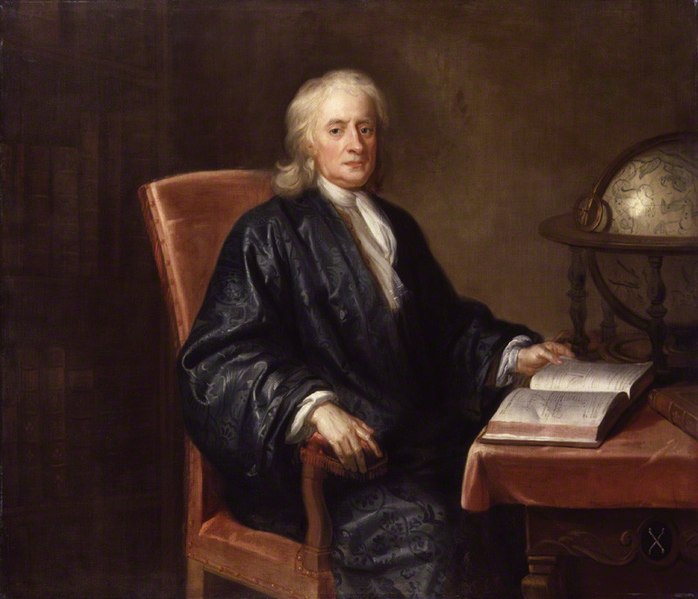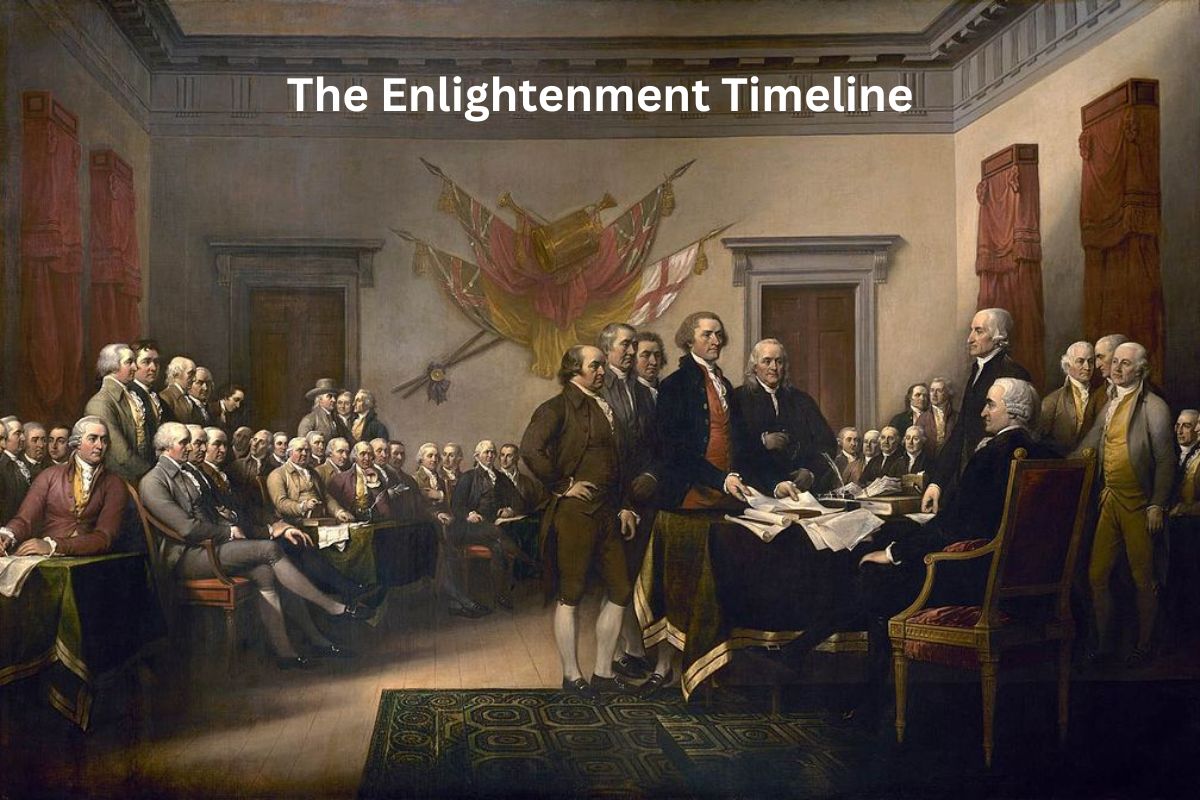The 18th century Enlightenment was a transformative intellectual and philosophical movement that swept across Europe. It championed reason, individualism, and the questioning of traditional authority, including that of the church and monarchy.
Enlightenment thinkers, such as Voltaire, Rousseau, and Adam Smith, made significant contributions to fields like philosophy, political theory, and economics, laying the foundation for modern thought.
This period also played a pivotal role in inspiring revolutionary movements like the American and French Revolutions, as it promoted ideals of liberty, equality, and human rights.
The Enlightenment remains a critical chapter in the history of human progress and the development of modern societies.
| Century | Year | Event/Figure |
|---|---|---|
| 17th Century | 1632 | Birth of Baruch Spinoza |
| 1642 | Birth of Isaac Newton | |
| 1651 | Publication of Thomas Hobbes’ “Leviathan” | |
| 1687 | Publication of Isaac Newton’s “Principia Mathematica” | |
| 18th Century | 1694 | Birth of Voltaire (François-Marie Arouet) |
| 1697 | Birth of David Hume | |
| 1712 | Birth of Jean-Jacques Rousseau | |
| 1713 | Publication of John Locke’s “Essay Concerning Human Understanding” | |
| 1748 | Publication of Montesquieu’s “The Spirit of the Laws” | |
| 1751 | Publication of Denis Diderot’s “Encyclopédie” | |
| 1759 | Publication of Voltaire’s “Candide” | |
| 1762 | Publication of Rousseau’s “The Social Contract” | |
| 1776 | Publication of Adam Smith’s “The Wealth of Nations” | |
| Late 18th Century | American and French Revolutions |
Timeline of the Enlightenment
1632 – Birth of Baruch Spinoza:
Baruch Spinoza, a Dutch philosopher, was born in this year. He would later become known for his works on ethics, metaphysics, and his radical views on religion and the nature of God. His philosophy challenged conventional religious and philosophical beliefs of his time.
1642 – Birth of Isaac Newton:
Isaac Newton, an English mathematician, physicist, and astronomer, was born in this year. He made groundbreaking contributions to the fields of physics and mathematics, most notably his laws of motion and the theory of universal gravitation.
Also Read: Facts About the Enlightenment
His work laid the foundation for modern physics and had a profound impact on Enlightenment science.

1651 – Publication of Thomas Hobbes’ “Leviathan”:
In 1651, the English philosopher Thomas Hobbes published his influential work “Leviathan.”
In this book, Hobbes argued for the social contract theory and the necessity of a strong, centralized government to prevent the “war of all against all.”
Also Read: Great Awakening Facts
His ideas on political philosophy and government authority were significant during the Enlightenment.
1687 – Publication of Isaac Newton’s “Principia Mathematica”:
In 1687, Isaac Newton published “Philosophiæ Naturalis Principia Mathematica” (Mathematical Principles of Natural Philosophy), commonly known as the “Principia.”
This work presented his laws of motion and the theory of universal gravitation, which revolutionized the understanding of the physical world.
Newton’s work in mathematics and physics laid the foundation for Enlightenment science and had a profound and lasting impact on scientific thought.
1694 – Birth of Voltaire (François-Marie Arouet):
François-Marie Arouet, better known as Voltaire, was a prominent French philosopher, writer, and advocate for freedom of thought and expression.
He used his wit and satire to criticize intolerance, superstition, and abuses of power, making him one of the most influential figures of the Enlightenment.

1697 – Birth of David Hume:
David Hume was a Scottish philosopher whose empiricist and skeptical views on causality and human knowledge had a significant impact on Enlightenment thought.
His works, such as “A Treatise of Human Nature” and “An Enquiry Concerning Human Understanding,” explored the limits of human understanding and the role of reason.
1712 – Birth of Jean-Jacques Rousseau:
Jean-Jacques Rousseau, a French philosopher and writer, was born in this year. He is known for his influential ideas on social contract theory, the general will, and the importance of individual freedom.
Rousseau’s works, including “The Social Contract” and “Emile,” profoundly influenced political and educational thought.
1713 – Publication of John Locke’s “Essay Concerning Human Understanding”:
John Locke’s “Essay Concerning Human Understanding,” published in 1713, had a significant impact on Enlightenment thought. In this work, Locke argued for empiricism and the idea of the tabula rasa, suggesting that human beings are born with a blank slate and that experience shapes their knowledge.
1748 – Publication of Montesquieu’s “The Spirit of the Laws” (De l’esprit des lois):
Montesquieu, a French lawyer and philosopher, published “The Spirit of the Laws” in 1748. In this work, he explored political theory and advocated for the separation of powers within government, a concept that would influence the framers of modern constitutions, including the United States Constitution.
1751 – Publication of Denis Diderot’s “Encyclopédie”:
Denis Diderot was a French philosopher and writer who edited and contributed to the “Encyclopédie,” a comprehensive encyclopedia that aimed to compile and disseminate knowledge. This project was a major Enlightenment undertaking that promoted the spread of ideas and knowledge.
1759 – Publication of Voltaire’s “Candide”:
Voltaire’s novella “Candide” was published in 1759. It satirically criticized the prevailing optimism of the time and highlighted social and philosophical issues, including the problem of evil and the human condition.
1762 – Publication of Rousseau’s “The Social Contract” (Du contrat social):
Jean-Jacques Rousseau’s “The Social Contract,” published in 1762, argued for the concept of a social contract and the sovereignty of the people in shaping government and law. This work had a profound impact on political philosophy and the idea of popular sovereignty.
1776 – Publication of Adam Smith’s “The Wealth of Nations”:
Adam Smith’s “The Wealth of Nations,” published in 1776, laid the foundation for modern economics with its advocacy of free-market capitalism and the invisible hand theory. Smith’s ideas significantly influenced economic thought and policy.
Late 18th Century – American and French Revolutions:
The Enlightenment ideals of liberty, equality, and fraternity played a pivotal role in inspiring and guiding the American Revolution (1775-1783) and the French Revolution (1789-1799).
These revolutions marked significant political and social changes and embodied Enlightenment principles in practice.
